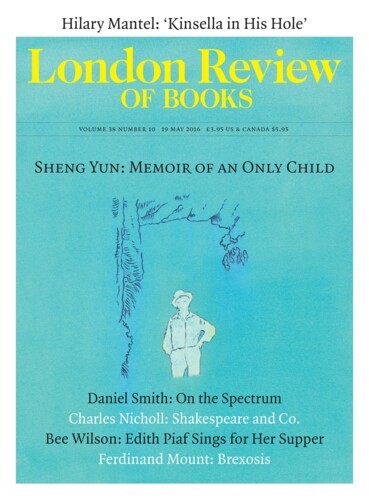In the late 1990s, Catholics made up roughly 40 per cent of the population of Northern Ireland, but fewer than 10 per cent of RUC members. The rubber bullets that US police officers have been firing so freely were initially designed for use by the British security forces in Northern Ireland, where they killed 17 people. RUC patrols carried weapons, wore flak jackets and drove around in armour-plated vehicles, foreshadowing the militarisation of US policing.
Daniel Finn
Daniel Finn is features editor for Jacobin and the author of One Man’s Terrorist: A Political History of the IRA. He is on the editorial board of New Left Review.
Nobody expected this outcome, least of all Sinn Féin. The party leadership thought they’d struggle to hold onto some of the seats they won in 2016. Last year’s local and European elections saw Sinn Féin lose two of its three MEPs and nearly half of its councillors. Because of its defensive strategy, which seemed prudent when the election was called, the party won’t have a seat share that matches its vote: the Irish electoral system has multi-seat constituencies, and in many places Sinn Féin could have taken a second seat if it had run more than one candidate. They won’t make that mistake again.
As Britain woke on Friday morning to discover that Theresa May had flushed her Commons majority down the drain, people found themselves having to learn about an unfamiliar party on which May (or her successor) would be relying to get anything done. The titles of the hastily commissioned primers – ‘So, Who Are The DUP?’; ‘Who are the Democratic Unionists and what do they want?’ – told their own story. The Democratic Unionist Party is Northern Ireland’s largest political force and was until recently the principal coalition partner in one of the UK’s devolved governments. But most of the time, what happens in Belfast or Derry is deemed irrelevant to political life on the other side of the Irish Sea.
Oh God, can we face it? ‘The BBC’s Irish Troubles’
Daniel Finn, 19 May 2016
The Conservative politician Airey Neave was a man whose life touched many bases. A Second World War veteran who became a close friend and ally of Margaret Thatcher, he was killed by Irish republicans when a bomb attached to his car exploded as he left the underground car park at the Palace of Westminster. Speaking to the Media Society in 1977, Neave had pitched his idea for a...
When Michael Noonan, the finance minister in Ireland’s outgoing Fine Gael-Labour coalition, said that ‘party allegiances are reverting back to what was the norm over the years,’ he might as well have been clicking his heels together and murmuring ‘there’s no place like home.’ The 2016 general election marked another stage in the disruption of the old political order, leaving Irish politics more fragmented and unpredictable than ever before.
Read anywhere with the London Review of Books app, available now from the App Store for Apple devices, Google Play for Android devices and Amazon for your Kindle Fire.
Sign up to our newsletter
For highlights from the latest issue, our archive and the blog, as well as news, events and exclusive promotions.


